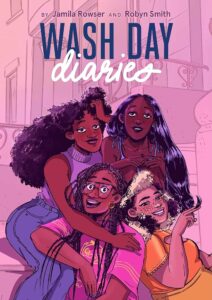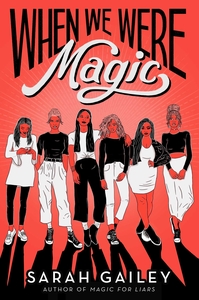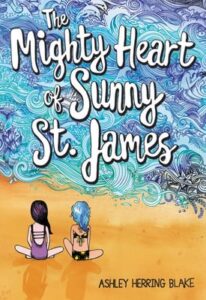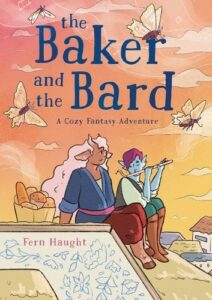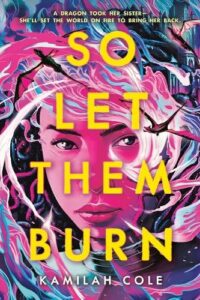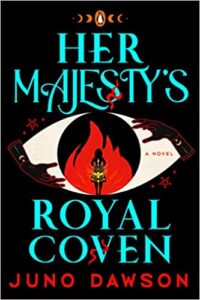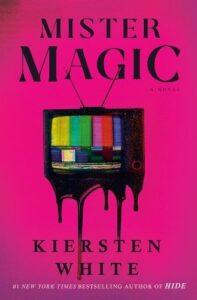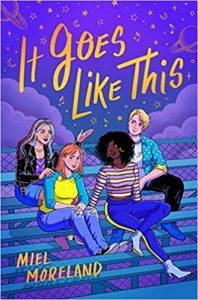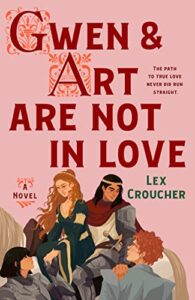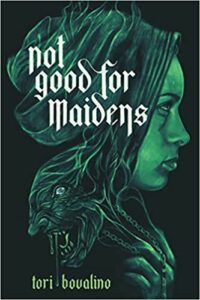Buy this from Bookshop.org to support local bookstores and the Lesbrary!
In Wash Day Diaries, readers follow a group of four young Black women from the Bronx, getting a glimpse of their daily lives through their hair care routine and wash day experiences. Presented as five interconnected short story comics, we get to meet Kim, who can’t get her possessive ex-boyfriend to stop texting her and just wants him to leave her alone; Nisha, who finds her way into a sexy love triangle and doesn’t know who to pick or how to choose between the two men; Davene, who struggles with her mental health and doesn’t know how to reach out to her friends for help and support; and Cookie, who hasn’t seen her grandmother in a while due to their strained relationship, but agrees to help her take care of her hair regardless.
This is not a high stakes story, but Rowser and Smith are so incredibly talented, it nonetheless feels like a deeply significant reading experience. Their true talent lies in their ability to take this otherwise short, slice-of-life plot, and present so much backstory and character development in a way that is completely smooth and natural. By the end of it, even though you’ll have breezed through the whole graphic novel in one sitting, you’ll feel as though you have known these characters their whole lives.
The beauty of this story is in how healing it is: from the panels detailing each step of a character’s hair care routine, to the passages showcasing the ways in which said routine can provide a safe space for open communication and love, the entire novel feels like a warm hug. I’m not usually a fan of slice-of-life stories, especially when it only spans over a few days, because I often get the sense that I did not have the opportunity to truly connect with the characters. However, this is absolutely not the case here. Rowser and Smith laid out so many different types of love within these pages and managed to address incredibly complex and nuanced topics within such a limited space, it is a true testament to the quality of their craft.
I love each of these characters, but Davene and Cookie are tied for my favourites. Davene’s struggles with her mental health will feel deeply relatable to a lot of people, specifically when it comes to her executive dysfunction and her difficulty reaching out to those around her. Rowser and Smith also don’t try to resolve her issues in a perfect, little package by the end of the story: they take the time to recognize that as healing as it might be to spend time with a friend, your depression and anxiety will not magically resolve themselves. People will misunderstand what you’re going through, they won’t know how to discuss it with you without accidentally being invalidating, they might not even be aware that you’re struggling at all. The book recognizes and expresses these realities that are difficult to admit, but important to discuss—and shows us that although community and support won’t solve everything, they are nonetheless genuinely helpful.
Cookie is another favourite of mine, not only for her loving and electric personality, but also because her queerness and her strained relationship with her grandmother are so personal to me. Coming out to your family and having that conversation completely change your relationship with them, oftentimes for the worse, is sadly an all-too common experience for queer people. Being able to read Cookie’s story, and seeing that despite their fraught relationship, her and her grandmother managed to find the space and opportunity to talk, connect, and understand one another, once again, was very healing for me. Rowser and Smith, as always, presented the situation in a way that was very realistic and grounded, not trying to sell their audience some pipe dream or featuring a three step guaranteed process to getting your family to accept every facet of your queerness. The entire chapter details the complex and nuanced rollercoaster of emotions that Cookie experiences behind her otherwise outgoing and bubbly personality, making her an incredibly fleshed out and relatable character. I truly loved reading every single panel she was in.
As a whole, the novel does an impressive job of pretending to be a soft, easy, slice-of-slice story, while taking you through an emotional journey of love, connection, community, identity, happiness, friendship, and support. It’s a quick read, but I strongly recommend taking your time to appreciate every aspect of the book, including each character’s little quirks and habits, as well as the beautiful art style. Smith does a stunning job of making these characters pop on the page—the colours are eye-catching, each character’s design is so well executed, and the ways that the panels flow together brings the whole thing to life. It truly is a dynamic reading experience, and I guarantee that you will fall in love with at least one, if not all of these women.
Representation: Black main characters, sapphic Dominican main character, main character dealing with depression/mental health issues
Content warnings: homophobia, depression, mental illness, dementia, toxic relationship, stalking, sexual harassment

